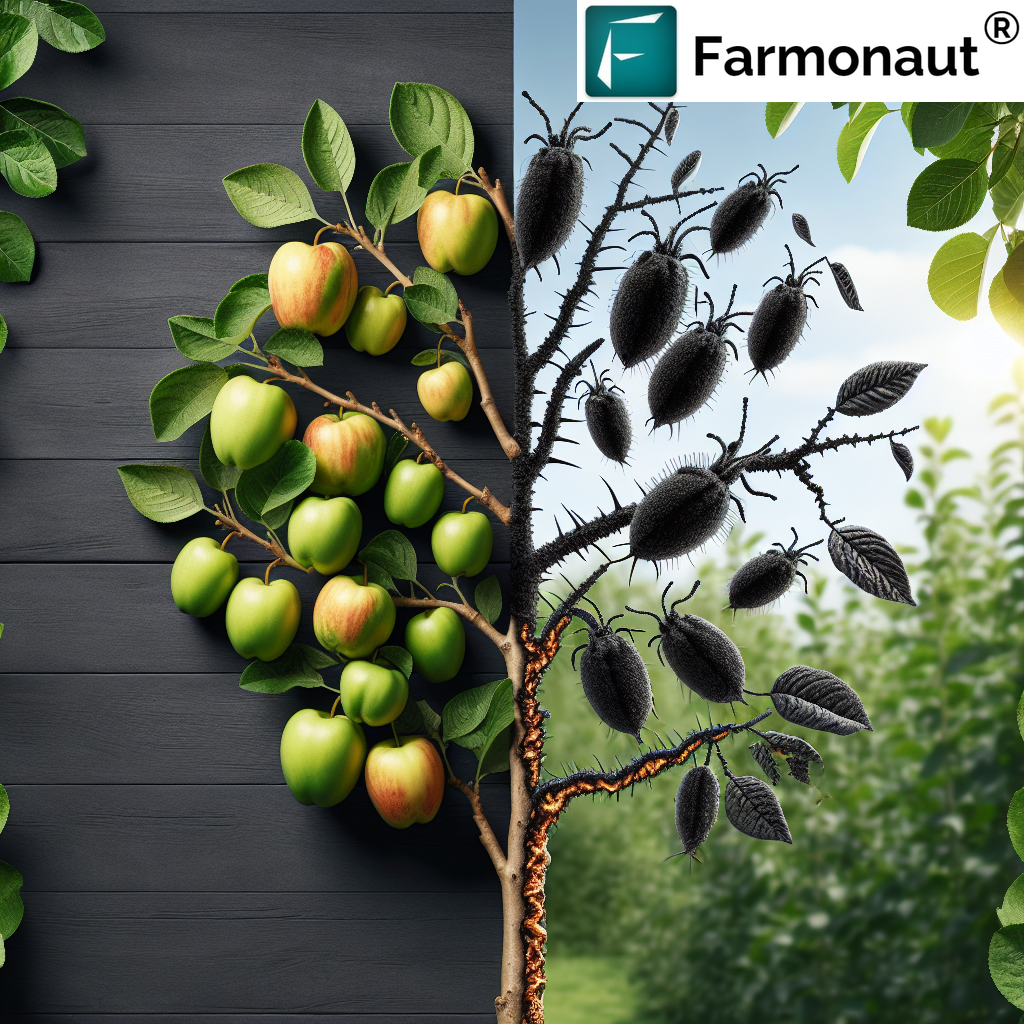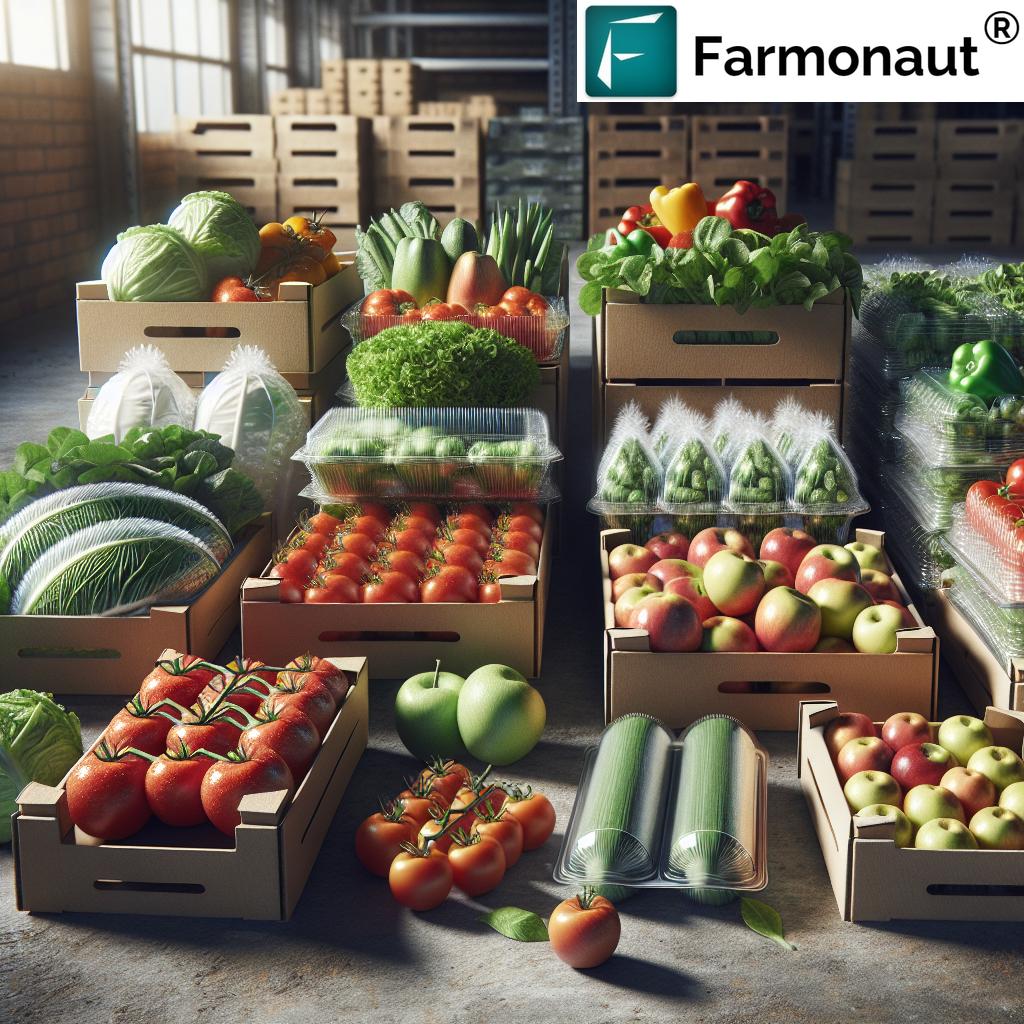Avocado, Cassava, Compost Farming: 7 Top Practices 2025
Advancements and Sustainability in Cassava Farming: A 2025 Perspective
“Cassava yields can increase by up to 30% with integrated compost farming practices in sustainable systems by 2025.”
- Introduction: The Growing Importance of Sustainable Crop Farming (2025)
- Cassava Farming: Current Challenges in Tropical & Subtropical Regions
- Innovations and Sustainable Practices Shaping 2025
- 7 Top Sustainable Practices for Avocado, Cassava, and Compost Farming (2025)
- Practice vs. Impact Comparison Table
- Farmonaut Solutions: Technology & Satellite Insights for Sustainable Agriculture
- Cassava Fun Fact!
- The Future of Cassava, Avocado, and Compost Farming: 2025 & Beyond
- Frequently Asked Questions (FAQ)
- Useful Resources
Introduction: The Growing Importance of Sustainable Crop Farming (2025)
In 2025, sustainability, resilience, and technology define the future of avocado farming, cassava farming, and compost farming. As pressures from climate change, soil degradation, and market volatility increase, farmers worldwide are seeking innovative and eco-friendly practices to not only boost yields but also ensure long-term food security and soil health.
Cassava (also known as manioc or yuca) is a particularly critical crop in tropical and subtropical regions. Its adaptability to poor soils and drought-prone environments provides a lifeline for millions of smallholder farmers worldwide. Yet, cassava’s success—much like that of avocados and the efficacy of composting—hinges on innovative, sustainable practices that address rapid development, challenges, and changes in market demands.
Why Focus on Cassava, Avocado, and Compost Farming in 2025?
- Cassava farming remains a major source of carbohydrates and industrial applications (starch, bioethanol, animal feed).
- Avocado farming is rapidly expanding due to global popularity, but requires sustainable water and soil management.
- Compost farming reduces chemical fertilizer dependency, enriches soil, and forms the backbone for regenerative and climate-resilient systems.
By exploring the synergy of these agricultural activities, we outline the 7 Top Sustainable Practices in 2025 that are shaping the sector and ensuring a resilient path forward for farmers and the planet.
Cassava Farming: Current Challenges in Tropical & Subtropical Regions
Despite its resilience, cassava farming faces several challenges that threaten its productivity and sustainability. Understanding these issues is crucial for designing innovations and best practices for 2025 and beyond.
Major Production & Environmental Challenges
- Pest and Disease Outbreaks: Cassava mosaic disease, cassava brown streak virus, and other threats continue to significantly hamper yields and soil health.
- Soil Nutrient Depletion: Continuous monocropping and lack of crop rotation have led to declining soil fertility and increased nutrient depletion.
- Erratic Weather Patterns: Climate change causes unpredictable rainfall, droughts, and temperature swings, exacerbating risks and crop failure.
- Limited Access to Quality Planting Materials: Farmers often lack access to disease-free or improved varieties, limiting adoption of better techniques.
- Traditional Methods & Insufficient Extension Services: Outdated practices and poor agricultural extension support restrict knowledge transfer and modern technique uptake.
- Price Instability and Market Access: Fluctuating markets and lack of infrastructure discourage investment, especially for smallholder farmers.
Similar issues arise in avocado farming (water stress, soil fertility, pest management) and compost farming (sourcing quality organic matter, knowledge of proper composting).
Innovations and Sustainable Practices Shaping 2025
To achieve lasting resilience in avocado farming, cassava farming, and compost farming, innovative and sustainable solutions are being adopted in 2025 at an unprecedented rate.
Core Pillars of Sustainability & Innovation
- Compost Farming: Utilizing organic compost increases soil fertility, moisture retention, and improves overall crop health—effectively reducing reliance on synthetic inputs.
- Integrated Pest Management (IPM): Combining biological, genetic, and cultural controls for sustainable pest and disease management.
- Resilient Crop Varieties: Use of new disease-resistant cassava and avocado strains developed via genomic selection and CRISPR gene-editing.
- Precision Agriculture: Satellite imaging, AI, drones, and soil sensors allow for tailored input application, water optimization, and early disease detection.
- Agroforestry and Polyculture: Integrating crops with trees for climate resilience, soil enrichment, and economic diversification.
- Water Conservation & Rainwater Harvesting: Addressing water scarcity through mulching and storage innovations.
- Market Connectivity: Digital traceability and transparent infrastructures create premium markets and strengthen food security.
7 Top Sustainable Practices for Avocado, Cassava, and Compost Farming (2025)
Let’s explore the essential sustainable practices shaping cassava, avocado, and compost farming in 2025—driving resilience, reducing costs, and unlocking economic value for farmers and the environment.
- Integrated Compost Farming
- Advanced Integrated Pest Management (IPM)
- Sustainable Crop Rotation & Polyculture Systems
- Agroforestry and Tree Integration
- Climate-Smart Water Conservation & Management
- Precision Agriculture & Digital Monitoring
- Market Connectivity, Traceability, and Certification
1. Integrated Compost Farming
Incorporating compost—rich in organic matter—into cassava farming significantly enhances soil structure, improves nutrient availability, and increases moisture retention. By reducing reliance on synthetic fertilizers, this practice supports climate and ecosystem health, while empowering farmers to boost yields by up to 30% (as highlighted in our trivia above).
- How it Works: Farmers collect crop residues, manure, and organic waste, composting them for several weeks. This material is applied during seedbed preparation or as top dressing in both cassava and avocado fields.
- Benefits: Improved soil fertility, reduced input costs, healthier root and tuber development, and higher resistance to drought.
2. Advanced Integrated Pest Management (IPM)
IPM combines biological controls (like predatory insects), disease-resistant cassava cultivars, proper field sanitation, and minimal, targeted pesticide usage. Cassava is especially vulnerable to viral diseases; modern IPM reduces crop loss and environmental impact.
- Deploy trap crops, mulch, and beneficial insects for control.
- Choose genetically improved seeds resistant to mosaic and streak viruses (Watch more)
- Rotate with non-host crops to disrupt pest cycles.
3. Sustainable Crop Rotation & Polyculture Systems
Rotating cassava with legumes, cereals, or vegetables helps reduce soil nutrient depletion, breaks disease and pest cycles, and diversifies income. Polyculture (multiple crops in the same field) enhances biodiversity and resilience.
- Reduce nutrient depletion caused by monocropping.
- Intercrop cassava with nitrogen-fixing plants for natural fertilization.
4. Agroforestry and Tree Integration
Blending cassava farming or avocado groves with shade trees or fruit/nut species delivers remarkable results in 2025:
- Biodiversity, carbon sequestration, reduced soil erosion.
- Additional income from timber, fruit, or ecosystem services.
- Climate resilience for smallholder farmers.
5. Climate-Smart Water Conservation & Management
2025 marks an era where water is precious. Mulching, contour farming, and rainwater harvesting reduce evaporation, store water for dry periods, and decrease irrigation costs—vital for both cassava and avocado.
- Plastic or organic mulches lock in soil moisture while improving soil structure.
- Simple on-farm reservoirs and catchment systems provide quality irrigation water for critical growth phases.
6. Precision Agriculture & Digital Monitoring
Technological advancements, including satellite monitoring, AI-driven advisory systems, and mobile data apps, offer real-time crop and soil health insights.
We (Farmonaut) provide tools such as:
- Satellite NDVI imaging for stress/disease detection, soil mapping, and growth stage analysis.
- AI-based weather, irrigation, and fertilizer recommendations to improve yields and limit resource waste.
- Blockchain traceability for supply chain confidence (learn more).
- Seamless integration with farm equipment and resource management systems for streamlined operations.
Get started with Farmonaut’s technology for real-time field insights and decision support:
7. Market Connectivity, Traceability, and Certification
Eco-labels, traceability (see Farmonaut’s blockchain-based solution), and farmer cooperatives are opening premium markets for ethically and sustainably farmed cassava and avocados.
- Certification signals quality and sustainability to global buyers.
- Traceable supply chains increase market value and farmer incomes, while giving end consumers confidence.
- Cooperatives empower smallholders with collective bargaining power and larger contract opportunities.
Practice vs. Impact Comparison Table
| Practice Name | Description | Estimated Yield Improvement (%) | Soil Health Score (1-10) | Climate Resilience | Market Value Increase (%) | Sustainability Level (1-5) |
|---|---|---|---|---|---|---|
| Integrated Compost Farming | Use of organic compost to enrich soil and reduce chemical inputs | 20-30 | 9 | High | 10-20 | 5 |
| Advanced IPM | Combination of biological, genetic, and cultural pest controls | 15-25 | 8 | High | 8-12 | 5 |
| Crop Rotation & Polyculture | Alternating and mixing crops to optimize nutrients & reduce disease | 12-18 | 8 | Medium | 8-10 | 4 |
| Agroforestry Integration | Incorporation of trees for biodiversity, microclimate, and erosion | 8-14 | 10 | High | 10-18 | 5 |
| Water Conservation & Rain Harvesting | Mulching, storage, and efficient irrigation management | 10-16 | 7 | High | 5-10 | 4 |
| Precision Agriculture & Monitoring | Use of satellite, AI, and sensors for data-driven decisions | 15-25 | 8 | High | 12-20 | 5 |
| Market Connectivity & Traceability | Digital traceability, certification, and cooperative marketing | 8-12 | 6 | Medium | 20-30 | 4 |
Farmonaut Solutions: Technology & Satellite Insights for Sustainable Agriculture
Our mission at Farmonaut is to empower farmers, agribusinesses, and governments with affordable satellite-based insights that drive sustainability, productivity, and transparency across the agricultural sector—especially within cassava, avocado, and compost farming systems.
How Do We Help Advance Sustainable Crop Systems?
- Satellite-Based Monitoring: We deliver real-time crop monitoring, soil health analysis, and disease detection via multispectral satellite images—including vegetation health (NDVI), water stress, and soil conditions.
- Jeevn AI Advisory System: Provides customized, actionable advice for planting, fertilizer use, and pest management—helping farmers make data-driven decisions for higher yields and less waste.
- Blockchain Traceability for Supply Chains: Our blockchain tools (see traceability product details) ensure transparent, tamper-proof tracking from farm to market—protecting against fraud and supporting premium, sustainable markets.
- Environmental Impact Tracking: With carbon footprint monitoring, we provide data on carbon sequestration from practices like agroforestry or composting—helping agricultural stakeholders showcase their climate-positive actions and comply with market and regulatory requirements.
- Resource & Fleet Management: Satellite-backed fleet optimization and resource tracking help farms, agribusinesses, and cooperatives improve efficiency and reduce costs.
- Crop Loan & Insurance Verification: Our satellite-based verification systems (read more) enable better access to financing and fair crop insurance for thousands of smallholders.
Access Farmonaut’s Scalable Solutions
Our platform fits any scale—from smallholder fields to enterprise farms. Custom web, Android, and iOS apps make real-time field monitoring and actionable recommendations accessible to all, with easy API integrations for developers.
Sign up or try Farmonaut’s services directly in your browser or mobile!
Explore Farmonaut’s API Platform
Building advanced agricultural software or need to integrate satellite imagery and insights into your agri-business? Access Farmonaut’s API platform and check our developer documentation for seamless integration!
We provide affordable subscriptions for farms and enterprises. Explore our scalable, cost-effective packages:
Cassava Fun Fact!
“Sustainable cassava farming innovations target reducing soil erosion rates by 25% compared to conventional methods by 2025.”
The Future of Cassava, Avocado, and Compost Farming: 2025 & Beyond
Looking ahead, sustainability is the foundation for all successful cassava, avocado, and compost farming. Advancements in genetics, agricultural technology, and data-driven systems will increasingly empower farmers to thrive despite climate variability, resource constraints, and market uncertainties.
Key Trends That Will Shape the Sector in 2025
- Continued integration of digital technologies for precision management.
- Broader adoption of blockchain-enabled supply chain transparency.
- Greater market premiums for certified sustainable and traceable products.
- Policy shifts toward supporting sustainable infrastructure, research, and extension services.
- Collaboration among stakeholders to improve market access and reduce price instability.
- More robust government and private sector investment in rural infrastructure and capacity building.
Ultimately, cassava farming in 2025 is a story of balancing productivity, environmental health, and farmer livelihoods—an inspiring model for all of agriculture.
Frequently Asked Questions (FAQ)
What is the importance of cassava farming in 2025?
Cassava remains one of the most critical and resilient food security crops in tropical and subtropical regions. It is valued for its ability to thrive in poor soils, drought-prone environments, and for its multiple industrial applications (starch, bioethanol, animal feed). Its flexibility increases both food and income security for millions of smallholder farmers worldwide.
How does compost farming benefit cassava and avocado cultivation?
Compost farming enriches the soil with organic matter, improves nutrient cycling, supports beneficial microbial activity, and enhances water retention. This leads to healthier crops, reduced fertilizer costs, increased resilience to drought, and bigger, more consistent yields—especially crucial for root and tuber crops like cassava.
What are the main climate challenges in cassava farming right now?
Erratic rainfall, prolonged droughts, and temperature extremes—all linked to climate change—are major challenges. These factors increase the risks of disease outbreaks, crop failures, and income loss. Innovative sustainable practices, such as deep mulching, agroforestry, and precision irrigation, help mitigate these threats.
How can I use technology (such as Farmonaut) to improve my yields?
Technological platforms like Farmonaut offer satellite-driven monitoring, real-time crop and soil health assessments, water stress analysis, and AI-powered advisory systems for smarter and more sustainable decision-making. Blockchain-based traceability also increases trust and marketability. All accessed easily via web, Android, or iOS app and API.
What is the impact of certification and traceability on market value?
Certification from recognized sustainable agriculture schemes and transparent traceability via blockchain tools open up premium consumer and industrial markets for your product, often increasing market value by 10-30% and boosting farmer incomes, especially as consumer demand for sustainable food rises.
How does sustainable cassava farming reduce soil erosion?
Practices like mulching, crop rotation, and agroforestry create ground cover and deep root systems, protecting soil from erosion up to 25% more effectively than conventional farming. Compost also improves aggregate stability, further reducing vulnerability to heavy rain or wind.
What’s the benefit of integrating crop rotation in cassava cultivation?
Crop rotation interrupts pest and disease cycles, decreases soil nutrient depletion, improves biodiversity, and can lead to yield improvement of up to 18% over monoculture systems.
Which Farmonaut products are most relevant to cassava sustainability?
Our most relevant products for cassava, avocado, and compost sustainability include: Satellite-based Monitoring & AI Advisory, Blockchain-based Traceability (Product Traceability), Carbon Footprinting (Climate Action), Fleet Management (Resource Optimization), and Crop Loan & Insurance Assistance (Access to Finance).
Useful Resources
- Cassava & Sustainable Roots: Farmonaut Carbon Footprinting
- Product Traceability: Farmonaut Traceability
- Farmonaut Large-Scale Farm Management: Enterprise Platform Overview
- Learn about APIs: API Platform | API Developer Docs
- Crop Loan, Insurance, and Resource Access: Read More
- Download Farmonaut Apps:



Conclusion
Cassava, avocado, and compost farming are rapidly evolving in 2025, shaped by sustainable practices, innovations, and smart, eco-friendly techniques. By blending tradition with advanced tools—from integrated compost management to AI-driven monitoring—farmers can overcome challenges, boost productivity and income, and reduce environmental impact.
The importance of embracing these changes remains clear: greater resilience, sustained soil fertility, and flourishing local and global markets. With support from technology (like Farmonaut), combined with smart policies and green investments, the future of cassava and avocado farming is sustainable, profitable, and a cornerstone for global food security.
Whether you’re a farmer, agri-entrepreneur, or policymaker, the tools and knowledge to thrive sustainably in 2025 are within reach—explore, adopt, and innovate today.







